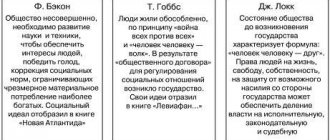Sincerity is a direct expression of experienced thoughts, relationships, and emotional states. This concept is used to characterize an individual act or existing relationship. For example, they talk about sincere convictions, interest, joy, love, friendship. In a broad sense, the concept of sincerity is applicable as a synonym for honesty, openness and directness, in a narrow sense it refers to congruence and authenticity. These terms are associated with the description of a state and behavior in which a person’s thoughts, feelings, attitudes and external manifestations are consistent and consistent.
What is sincerity?
Sincerity is a character trait and a feature of a person’s behavior, which consists in the fact that he does not hide his true thoughts and intentions, speaks openly about his attitude towards people and various circumstances. This is one of the aspects of honesty, which manifests itself in the fact that a person behaves congruently, and the words he speaks do not contradict his true thoughts, desires, intentions and principles.
The word “sincerity” is derived from the Old Russian word “spark”, which is translated as “near” or “close”. Some linguists believe that it is related to the words “root” and “edge”.
says exactly what he thinks about everything He is not inclined to be a hypocrite, so when he talks about someone he knows, his words do not depend on whether that person is nearby. Sometimes this directness leads to a person speaking too harshly and may inadvertently offend someone. But most of his acquaintances get used to it over time and begin to appreciate this trait of his character.
Sincerity is a quality of a strong personality, allowing her to freely and openly express her thoughts without adapting to circumstances. This does not mean that a person behaves tactlessly or rudely, he simply always remains himself in any company, and does not adapt to the expectations of others. As a rule, sincerity is a conscious rejection of hypocrisy and any form of deception.
There are two forms of sincerity:
- Sincerity in communication. This is a free and open expression of one’s thoughts, feelings and intentions, excluding hypocrisy.
- Sincerity in relationships. This is openness in relationships with loved ones, complete honesty and the absence of hidden intentions.
A sincere person behaves as naturally as possible. And this allows him to save mental energy, since he does not have to depend on circumstances. He always and everywhere speaks the same way, which means he should not think about what he can say in a certain company and what things he has already said to these people.
Sincerity in the modern world
In the modern world, a sincere person is a rarity. Sincerity is often perceived as unsophisticated, and therefore stupid and even flawed. Simply put, this quality is interpreted as an inability to adapt to life situations. Nowadays, there is even such a concept as the degree of sincerity. You may be asked: “How sincere are you?” This is fundamentally wrong, because sincerity is akin to honesty. To be a little honest, as well as not to be completely sincere, is tantamount to being deceitful and false. In the present time of the race for survival, among a sea of lies, falsehood and hypocrisy, there are really few people who can remain completely sincere. Only incredibly strong people or very stupid ones are capable of this. Stupid as little children. Only children are sincere in their naivety, which over time, after several deceptions and disappointments, along with gullibility, leaves the growing child. How to preserve this feeling and is it necessary?
How is sincerity demonstrated?
True sincerity cannot lead to problems in relationships with loved ones. If a person has this quality, he gets used to living with it and internal congruence is formed. By adjusting to his sincerity, he learns to be more respectful and attentive to others. Thanks to this, he simply does not have to be a hypocrite - he always talks about people as if they were nearby.
The opposite of sincerity is hypocrisy - a moral quality that allows a person to “adapt” to circumstances, always speaking and acting in such a way as to gain the approval of others. Therefore, the absence of hypocrisy in communication and relationships can also be considered a manifestation of sincerity.
Part of speech of the words “sincerely”, “sincerely”
On special occasions, in congratulations, in words of gratitude for help or service provided, the words that interest us are actively used:
I sincerely thank you for providing the loan on time.
We sincerely congratulate you on your anniversary!
These words differ only in one letter at the end. Let's figure out how to write this lexeme correctly, with the letter “e” or “o”. First, let's determine the part of speech to which it belongs.
The words we are interested in do not change. In a sentence they depend on the verb and answer the adverbial question:
- thank you (how?) sincerely;
- Congratulations (how?) sincerely.
Based on these grammatical features, it can be determined that this is an independent part of speech, an adverb that is synonymous with words of the same part of speech:
- cordially;
- true;
- from the heart.
Differences between sincerity and honesty
These concepts are quite closely related to each other, and yet they should not be identified. A person can be honest and principled, but at the same time rather closed and not inclined to sincere communication. That doesn't make him a hypocrite. It is likely that he is simply too cautious and is afraid of offending someone by telling them the truth in their face. At the same time, he notices his shortcomings, so he is forced to choose his words when communicating.
Honesty does not make a person sincere, but sincere people, as a rule, are honest. Although there are exceptions. For example, someone may speak completely sincerely, frankly expressing all the thoughts that come to his mind. At the same time, he can get so carried away that he himself will not even notice that he is telling a lie.
- Honesty is the tendency to express thoughts truthfully in words. An honest person always tells the truth (which is not necessarily the truth, but certainly corresponds to what he thinks).
- Sincerity is the tendency to openly express thoughts, emotions and intentions without hiding anything. Unlike honesty, sincerity can be excessive and irrational.
The main difference between sincerity and honesty is that an honest person never lies, and a sincere person never hides anything. That is, an honest person may well hold back, hiding part of the truth. A sincere person is not able to hide the truth if he understands that it is important for the interlocutor in the context of their conversation.
Sincere person. The meaning of this expression
Who is a sincere person? How to define this concept? To put it in a nutshell, a sincere person is not someone who tries not to pretend or lie to others. This is the one who cannot act differently. On the contrary, it is much more difficult for him to play a role and be disingenuous. Most likely, he will not succeed. It is very easy to deceive such people, because they measure everyone by their standards and are accustomed to trusting this world. If someone ever deceives them, they will simply consider it an annoying misunderstanding and will not lose trust in everyone else.
A sincere person is like a child who has grown in mind, but has not grown in soul.
In fact, there are not so many such people. Unfortunately, what generally happens is that children, who are sincere by nature, grow up and lose this quality. They begin to distrust this world and play some roles in order to achieve their desired goals.
The benefits of sincerity
Sincerity is a quality characteristic of leaders. Sincere people are listened to, trusted, and respected. Even for an ordinary person who does not aspire to a leadership position, sincerity can provide significant benefits, such as:
- freedom from hypocrisy and lies;
- no need to remember who knows what;
- internal integrity, compliance of actions with desires;
- harmonious relationships with others;
- honesty and trust in personal relationships;
- trust from business partners;
- increasing your chances of success in all areas of life.
Sincerely or sincerely - which is correct
Hello, dear readers of the KtoNaNovenkogo.ru blog. Very often we come across in different texts the fact that the same words can be spelled differently.
One such example is SINCERELY and SINCERELY.
Both of these words can be found in books or online articles. And, naturally, the question arises - what is the right way?!
False sincerity
Sincerity has a serious drawback - it is easy to fake. If a person sets such a goal, he can communicate easily and naturally, demonstrate openness, look at the interlocutor with honest eyes, show emotions, giving free rein to facial expressions and gestures. And when all this is present in the behavior of the interlocutor, we usually succumb to this artificial charisma and believe in the sincerity of the ostentatious experiences.
Since any experienced manipulator knows perfectly well how sincerity manifests itself, he can easily fake this quality. He knows how to portray positive emotions and inspire the trust of his interlocutor, receiving some dividends for this. Such a person is much more dangerous than someone who does not hide his reluctance to be completely open and frank.
False sincerity is the favorite tool of all manipulators, regardless of their goals and motives.
The opposite situation is also possible. There are gestures that are usually perceived as a signal of an attempt to hide something important. For example, the interlocutor may scratch his nose, hide his face, look away, and demonstrate a mismatch between verbal messages and nonverbal signals. This is perceived as a sign of insincerity, although in fact it only indicates that the person is worried.
What does "sincerely" mean? Meaning of the word
If we take the definition of the word “sincerely”, it means “truthfully” and “frankly”. You can sincerely love, hate, respect, etc. Sincerity can manifest itself in words, deeds, and actions. To do something sincerely means to do it from the heart, with pure intentions, without secret thoughts. If a person does something sincerely, the meaning of this action characterizes his true attitude. After all, unfortunately, it often happens that people think one thing, say another, and do something else. In this case, it is difficult to figure out what a person really feels.
In order for people to treat you sincerely, you need to be honest yourself, and above all to yourself.
People often engage in self-deception and come up with excuses for their actions. But if others feel false in your words or deeds, you should not count on a sincere attitude towards yourself.
Spelling of words "sincerely", "sincerely"
To understand which letter should be written at the end of an adverb, let's turn to word formation.
From the qualitative adjective “sincere” a cognate adverb is formed using a suffix:
sincere ← sincere
The choice of the suffix, designated by the letter "e", is obvious. The final voiced consonant of the adjective [n'] is soft.
In the Russian language there was an adjective “sincere”, lost in modern speech, which had a stem with a hard final consonant. A similar adverb was formed from it using the suffix -o:
sincere ← sincerely
And now in the Russian language there are the words “sincerely” and “sincerely” as full variants of the same concept “to treat with soul, cordially.”
These words may be a short singular form of a neuter adjective, depending on the meaning of the context. The grammatical forms of the adjective that are homonymous to the adverb have the same variable spelling.
Although the adjective “sincere” (“sincere”, “sincere”, “sincere”) is outdated in modern Russian, nevertheless, its short forms with a solid base are preserved in speech:
- the girl is sincere;
- these people are sincere.
Tags
derivative adjective used in the word Test Word
adjectivewordquestionsanswerlettersuffixcorrectdataformedstressonecommentruleswritebackdictionariesarticlenecessarymeaningformpartstwotestparsingverbmailhomerulesitetwothereareadjectiveclausesotheroptionsnamewrittensignpoliticsspokespellingegeennonlywewritetypeusedfirstisshortparticiplematerialguestour for example, both always have no name, except books have a lot











